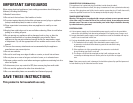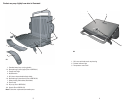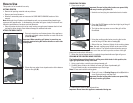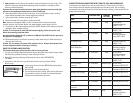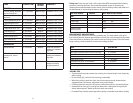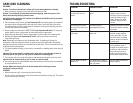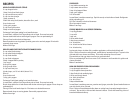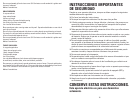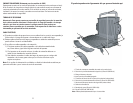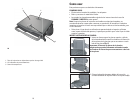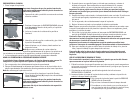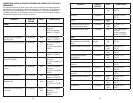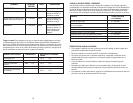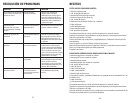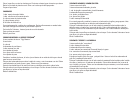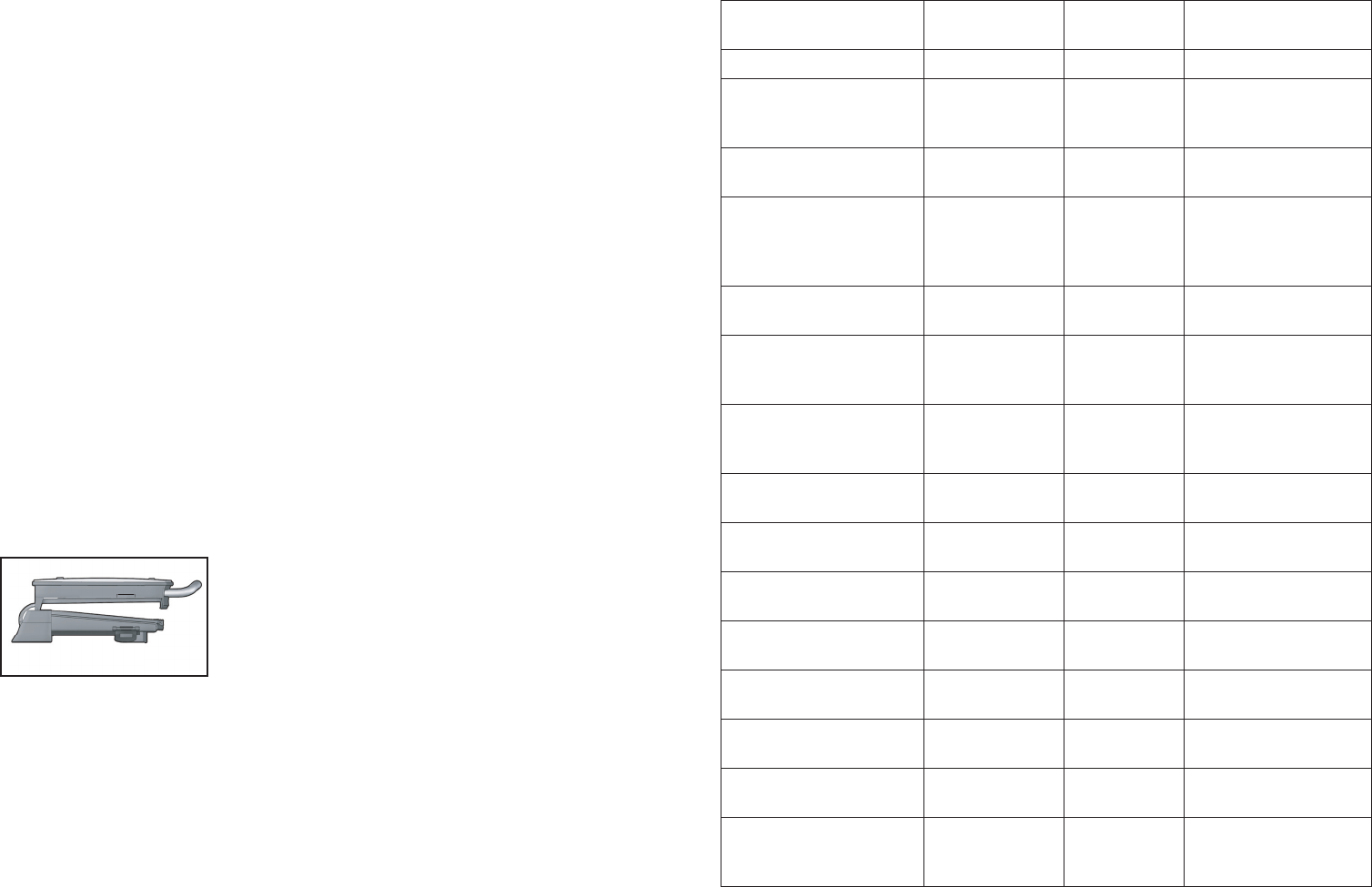
8
7
5. Light pressure can be used on the handle to press and heat food to your liking. This
feature is especially handy when preparing grilled sandwiches and grilling thick
pieces of meat and poultry.
Important: Do not exert excessive pressure when using handle to press; use only light
pressure to avoid putting extreme stress on float & lock hinge.
6. After selected time, the food should be done. If you would prefer longer cooking,
simply follow the steps in this section beginning at step 4.
7. Using a pot holder, carefully open the grill cover.
8. Remove cooked food using plastic spatula provided.
Note: Always use heatproof plastic, nylon or wood utensils to avoid scratching
nonstick surface of grill plates. Never use metal skewers, tongs, forks or knives.
9. Turn the dial to the lowest setting; press the ON/OFF button to OFF. Always unplug the
appliance when finished cooking.
Caution: To avoid sparks at outlet while disconnecting plug, make sure power is off
before disconnecting plug from outlet.
Important: Heating elements will continue to be ON until the On/Off switch is pressed or
the appliance is unplugged.
10. Allow the drip tray to cool before removing it from under the grill. Wash and dry the
drip tray after each use.
Caution: Do not remove grill plates while appliance is hot. Always allow them to cool
to room temperature before removing or cleaning.
USING THE LOCKING HINGE POISITION
This feature keeps upper grill plate above food on lower grill plate.
1. This grill has a unique feature that allows the top grill plate to be locked in place above
the food being cooked, allowing for even melting of cheese.
2. If the grill is not hot, preheat grill following directions under PREHEATING
THE GRILL.
3. Lift handle of the grill cover up and forward into the locking position of float
& lock hinge.
4. Lower the grill cover into the BROILING position above
the food (J).
5. Allow food to cook for desired time.
6. For even browning and cooking, when grilling more than
one sandwich or piece of meat, it is important that the
thickness of each be about the same.
SUGGESTED GRILLING CHART FOR MEATS, POULTRY, FISH AND SANDWICHES
The following are meant to be used as a guideline only. Times reflect a full grill of
food. Cooking time will depend upon thickness and cut being used. Use a cooking
thermometer as a test for doneness. If food needs longer cooking, check periodically to
avoid overcooking food.
J
FOOD COOKING TIME COOKING
SETTING
COMMENTS
MEAT
Hamburger (5 oz.) 4 – 6 minutes High ¾-inch thick
Cooked to medium
(160ºF / 71ºC)
Frozen Hamburgers
(5 oz.)
5 – 6 minutes High Cooked to medium
(160ºF / 71ºC)
Flank steak (¾ lb.) 6 – 8 minutes High ¾-inch thick
Cooked to medium
rare (145ºF / 63°C)
Skirt steak (½ lb.) 4 – 6 minutes High Cooked to medium
(160ºF / 71ºC)
NY Strip Steak
(Shell Steak) 6 oz.
6 – 8 minutes High ¾-inch thick
Cooked to medium
rare (145ºF / 63ºC)
Beef Tenderloin (5 oz.) 4 - 6 minutes High ¾-inch thick
Cooked to medium
rare (145ºF / 63ºC)
Beef Kabobs 5 – 7 minutes High Cooked to medium
(160ºF / 71ºC)
Pork loin chops,
boneless
4 – 6 minutes Medium High ¾-inch thick
Cooked to 160ºF (71ºC)
Pork loin chops, bone in 4 – 6 minutes Medium High ½ -inch thick
Cooked to 160ºF (71ºC)
Sausage, link or patty 4 - 6 minutes Medium High Cooked to 160ºF (71ºC)
Hot dogs 4 – 5 minutes Medium High Cooked to 168ºF (76ºC)
Bacon 6 – 8 minutes Medium High Cooked until just crisp
Smoked pork loin chops,
boneless
4 – 6 minutes Medium High Cooked to 160ºF (71ºC)
Lamb chops, loin 5 – 7 minutes High ¾-inch thick
Cooked to medium
(160ºF / 71ºC)




